Premier League’s profitability and sustainability rules are to be replaced as early as this summer; the new system will be aligned with UEFA’s squad cost ratio rules; new regulations will not affect the ongoing cases regarding Everton, Nottingham Forest and Manchester City
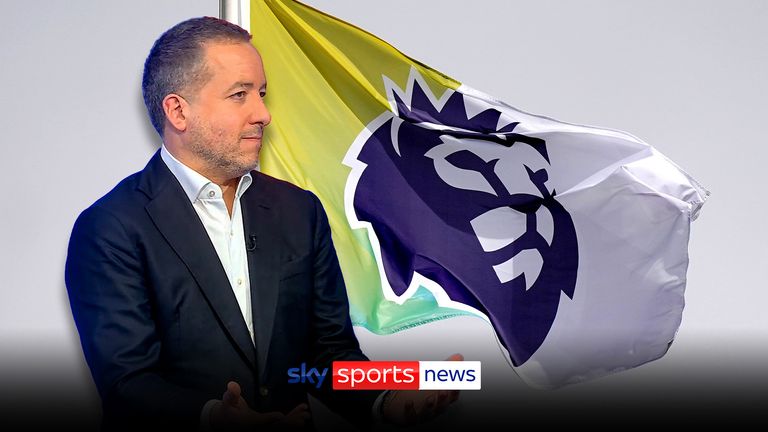
The Premier League are set to scrap their controversial profitability and sustainability rules as soon as this summer. Sky Sports News’ chief reporter Kaveh Solhekol explains what it means
The Premier League’s controversial profitability and sustainability rules (PSR) are set to be replaced as early as this summer by a new system of financial regulation.
The new system will be aligned with the squad cost-to-revenue ratio contained within UEFA’s Financial Sustainability Regulations (FSR).
Those regulations will eventually limit clubs participating in European competitions to only spend 70 per cent of revenue on transfer fees, player wages and so on.
- PSR explained: What limits clubs spending more?
- Live Premier League table | Fixtures | Results
- Watch Premier League highlights for free on Sky Sports
- Stream Sky Sports with NOW | Get Sky Sports on WhatsApp
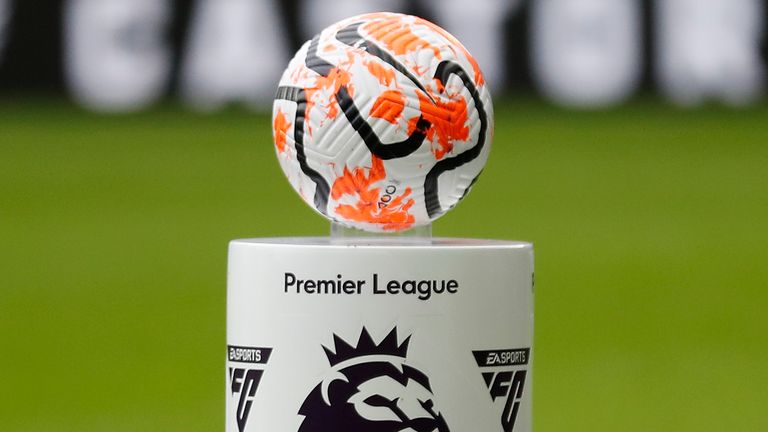
Image: The Premier League's profitability and sustainability rules are set to be replaced
The Premier League has been looking at a model enabling clubs to spend up to 85 per cent of revenue on squad cost, with a sliding scale of penalties in place where clubs exceed that ratio.
However, there is no guarantee that the new financial model will even be signed off at the league’s annual general meeting in June.
If approved, the new rules will not affect the ongoing cases regarding Everton, Nottingham Forest and Manchester City, who will all continue to be judged on existing financial models.

Sky Sports’ Sam Blitz explains what the Premier League’s profitability & sustainability rules are and how they affect clubs’ ability to spend
A Premier League statement on Monday read: “At a Premier League Shareholders’ meeting, clubs agreed to prioritise the swift development and implementation of a new League-wide financial system.
“This will provide certainty for clubs in relation to their future financial plans and will ensure the Premier League is able to retain its existing world-leading investment to all levels of the game.
“Alongside this, Premier League clubs also re-confirmed their commitment to securing a sustainably-funded financial agreement with the EFL, subject to the new financial system being formally approved by clubs.
“The League and clubs also reaffirmed their ongoing and longstanding commitment to the wider game which includes £1.6 billion distributed to all levels of football across the current three-year cycle.
“The Premier League’s significant funding contributions cover all EFL clubs and National League clubs, as well as women and girls’ football, and the grassroots of the game.”
The latest on Everton, Forest and Man City
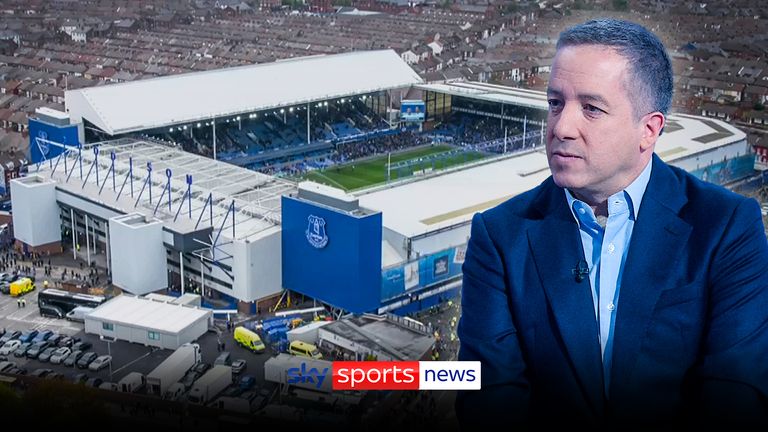
Speaking last month, Kaveh Solhekol explains that while Everton will be pleased to see their 10-point deduction reduced, there should be caution with an investigation ongoing over another possible breach of PSR
Last month, Everton had their 10-point deduction for breaching the Premier League’s profitability and sustainability rules reduced to six following their appeal hearing.
Everton were sanctioned by an independent commission on November 17 after being found to have exceeded permitted losses by £19.5m over an assessment period ending with the 2021-22 season.
The club appealed the decision with the hearing taking place over three days, which concluded at the start of February.
However, Everton are facing another possible points deduction after they were charged in January with breaching the rules for a second time, along with Nottingham Forest.
Forest should know what punishment they will face by April 15, but could appeal against that decision.
In January, Premier League chief executive Richard Masters said a date has been set for Manchester City’s hearing over 115 alleged breaches of the league’s financial rules, but did not reveal when.
PL meeting ends without new deal for EFL clubs
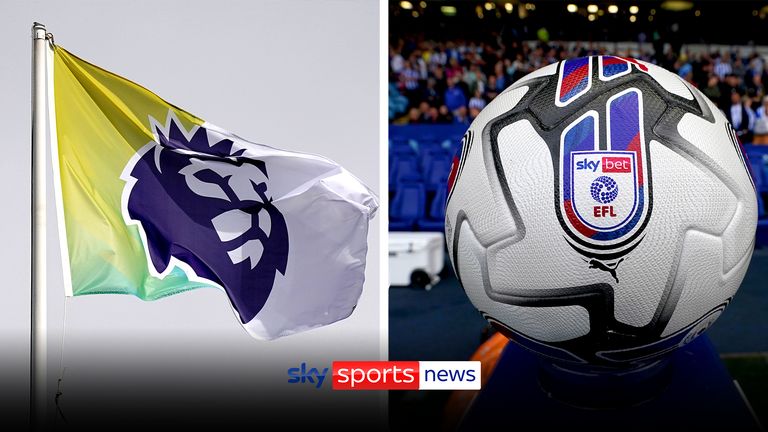
Kaveh Solhekol explains why Premier League clubs have failed to secure a funding agreement with EFL clubs and the possible repercussions
Despite the latest developments, no offer of increased funding for the English Football League clubs was forthcoming from Premier League clubs at Monday’s shareholders’ meeting.
Top-flight sources had expressed hope before the meeting, which could have been decisive after what was described as a ‘staging’ meeting on February 29.
However, a deal to increase funding to EFL clubs from £340m to £500m a year for six years was not even voted on, with top-flight clubs feeling it is first essential they thrash out a new financial system that will ultimately replace the current profitability and sustainability rules.
The Government has repeatedly said it wants the football authorities to agree a new financial settlement amongst themselves but has warned that one could be imposed upon them by ‘backstop’ powers set to be given to the new independent regulator.
Would potential new rules only benefit PL’s big clubs?
Sky Sports News chief reporter Kaveh Solhekol:
“The financial rules can be changed because the clubs are unhappy with them. Premier League clubs don’t want to give more money away to EFL clubs when they don’t know what their own financial situations are going to be.
“The clubs have said: ‘Hold on, what we want to do is replace PSR with a new financial regulation system. We’re going to do that first and once we have that new financial system in place, then we will look again at how much money we pass on to EFL clubs’.
“It’s self-interest for the Premier League clubs. All clubs will always look after themselves. They feel the PSR as they exist at the moment are not fit for purpose. Now you could counter that and argue they’re rules that they agreed to. They voted for them. So they signed up to them, they came into force and the feeling now is they don’t work.
“How the new proposal would work, which is closely aligned to UEFA’s financial rules, is that Premier League clubs would only spend up to a maximum of 85 per cent of your revenue on transfers and wages. That sounds like it could be fairer, because at the moment we’ve got a system where you can’t lose more than £105m over a three-year period.
“Now this might sound like a better system, but does it mean that going forward, the bigger clubs are always going to have more money to spend on transfers and wages?
“Because if you’re only allowed to spend a limit of 85 per cent of your revenue on players and wages, if your revenue is £700m, you’ll be able to spend £595m on players and wages. But if your revenue is only £100m, you’ll only be able to spend £85m on players and wages. So I’m sure that will be something Premier League clubs will look at.”
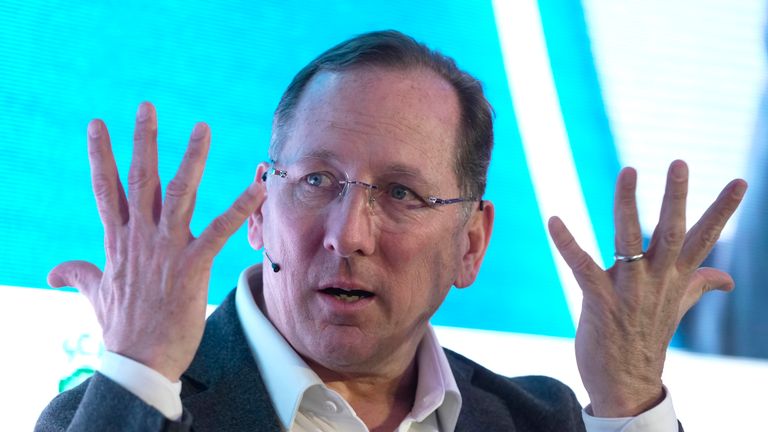
At the beginning of March, Crystal Palace co-owner John Textor called for changes to the spending restrictions placed on Premier League clubs (video courtesy of Financial Times)
PSR explained: What limits clubs spending more?
In the simplest terms, when every Premier League team tots up their annual accounts, they can have made a loss no greater than £105m across the previous three seasons.
Clubs can only lose £15m of their own money across those three years. So that’s no more than £15m extra on outgoings like transfer fees, player wages and, in a lot of clubs’ cases, paying off former managers compared to their income from TV payments, season tickets, selling players and so on.
The other £90m of any £105m must be guaranteed by their owners buying up shares, known as ‘secure funding’, and essentially means bankrolling the club.
Sourse: skysports.com






